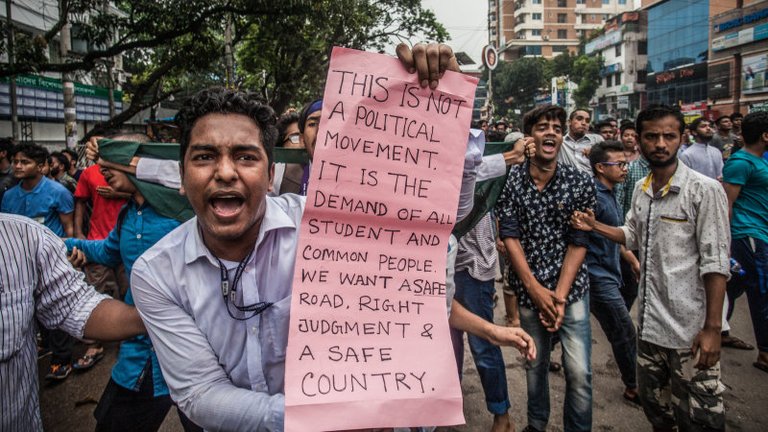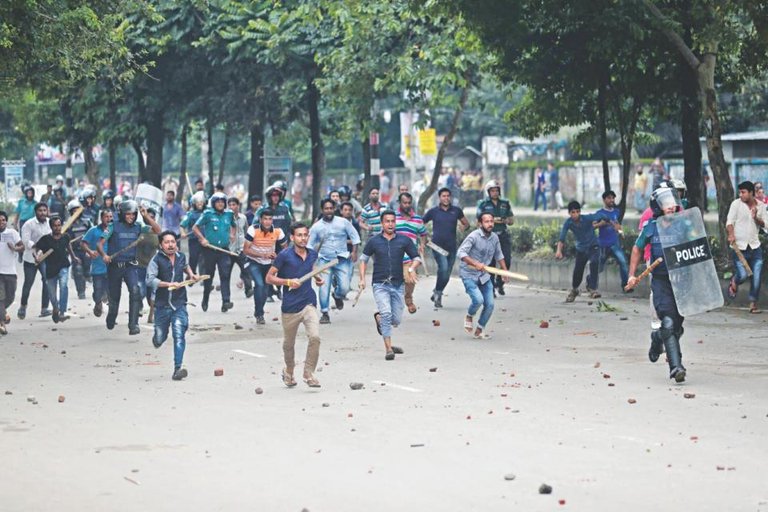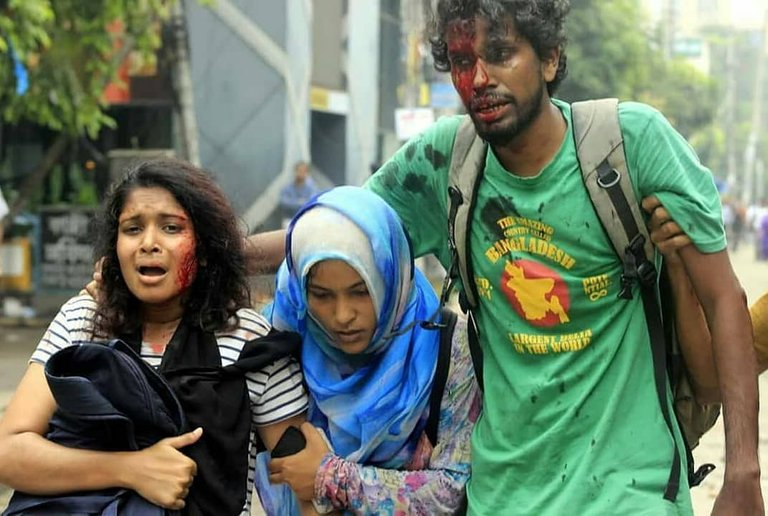The Bangladeshi prime minister, Shiek Hasina, has urged students to go home as police fired teargas during an eighth day of protests over road safety which have paralysed parts of Dhaka.
Students in their tens of thousands have brought parts of the capital to a standstill after two teenagers were killed by a speeding bus.
The unrest quickly spread beyond the capital. Authorities have shut down mobile internet services across swathes of the country, officials and local media said.
On Saturday the protests took a violent turn in Dhaka’s Jigatala neighbourhood, with more than 100 people as police fired rubber bullets at demonstrators.
A car carrying US ambassador Marcia Bernicat was also attacked by “armed men” but she escaped unhurt, the embassy said.

The violence continued on Sunday with police firing teargas into a large crowd marching toward an office of the ruling Awami League party, an AFP correspondent said.
Hasina warned on Sunday that a “third party” could sabotage the protests and put the safety of demonstrators at risk.
“That’s why I request all guardians and parents to keep their children at home. Whatever they have done is enough,” the prime minister said from her office.
Some youngsters were rushed to hospital on Saturday after being attacked, allegedly by pro-government activists, witnesses said.
Hasina’s warning came as protesters marched towards the scene of Saturday’s clashes chanting, “We want justice!”
Police denied they fired rubber bullets or teargas at the protesters. However, hospital staff said dozens of people had been injured, some seriously, and injuries were consistent with rubber bullets.

The Awami League has denied allegations that its officials beat up students.
The country’s biggest-circulation newspaper, Prothom Alo, said 3G and 4G internet services have been shut down since late on Saturday, shortly after the violence broke out.
Social media has been filled with comments from Bangladeshis unable to access the internet via their phones, although wireless and wired networks appear to have been unhindered.
The Bangladesh Telecommunications Regulatory Commission said it would comment later on Sunday.

A senior telecoms official who asked for anonymity said: “The BTRC has slowed down the internet at the order of the government.”
The move may be an attempt to limit the ability of students to mobilise or express growing online anger at how the government has handled the protests.
Images and photos of the attacks on students allegedly by ruling party activists have flooded social media, prompting renewed anger.
Bangladesh’s transport sector is widely seen as corrupt, unregulated and dangerous. As news of the teenagers’ deaths spread rapidly on social media they became a catalyst for an outpouring of anger against the government.
Hasina’s government has ruled Bangladesh since 2009, but in recent months it has been shaken by separate mass protests demanding an end to a decades-old system of discriminatory civil service recruitment.
Several powerful ministers have urged students to return to their classes, amid fears the unprecedented teen anger could spark widespread anti-government protests before a general election due later this year. But their pleas have had little effect.
An insensitive comment by Shajahan Khan, a government minister with ties to powerful transport unions, fanned the flames last week.
Khan questioned why there was such an uproar over the two Dhaka children but no reaction when 33 people were killed in an Indian bus crash the day before.
There have been widespread social media demands for the minister’s resignation despite his subsequent apology.
High schools were shut on Thursday as officials promised students their demands for road safety reforms would be considered.
.....................................................
Please I request who eve reading this Please help all of my teen brothers and sisters. I can not watch them dying on street . Make awareness all over the world.